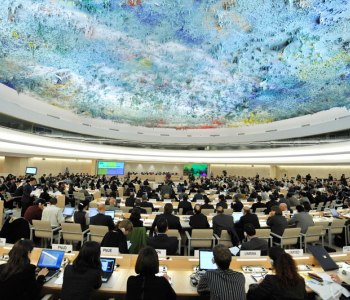State Media must not be part of hate campaign
There is an ongoing media campaign against some key Human Rights workers and the NGOs who have spoken out in favor of the proposed resolution on Sri Lanka at the sessions of the UN Human Rights Council in Geneva. The campaign to vilify and incite hatred
towards these NGOs and human rights activists in the context of the sessions of the UN Human Rights Council in Geneva is of particular concern as it involves the use of the state controlled media.
At the core of the discussions on Sri Lanka at the UN Human Rights Council in Geneva is the report of the Lessons Learnt and Reconciliation Commission which clearly calls for the upholding of democratic rights, including freedom of expression. The LLRC emphasizes the restoration of the Rule of Law and the integrity of state institutions. Article 18 of the UN Declaration on Universal Human Rights upholds the right to freedom of thought. This basic right goes with other fundamental freedoms, such as freedoms of expression, association and assembly. It also covers the rights of individuals who defend the rights of minorities who are struggling for their rights in their own country.
The National Peace Council regrets that even while the government is trying to convince the international community that it is committed in both spirit and substance to the recommendations of the LLRC and to upholding universal human rights, certain sections persist in intimidation of the NGOs and human rights activists using the state media. We are deeply concerned that the background is being created for targeted attacks and that the state-controlled media is being utilized for this purpose in an orchestrated campaign. Incitement of the people is a reckless exercise which may spill over to mindless violence against minorities and those perceived to be enemies which the government may find difficult to restrain once unleashed as in 1983.
These harmful efforts will also provide further evidence that there is only limited space for human rights or democratic values within Sri Lanka and hence provide additional justification for the proposed Resolution on Sri Lanka to be passed. We therefore call upon the government to ensure that the state controlled media is not used to propagate a hate campaign and malicious attacks on the NGOs and those who support the proposed Resolution.
Governing Council
The National Peace Council is an independent and non partisan organisation that works towards a negotiated political solution to the ethnic conflict in Sri Lanka. It has a vision of a peaceful and prosperous Sri Lanka in which the freedom, human rights and democratic rights of all the communities are respected. The policy of the National Peace Council is determined by its Governing Council of 20 members who are drawn from diverse walks of life and belong to all the main ethnic and religious communities in the country.

